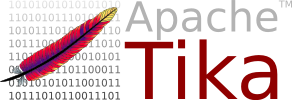I laughed when I found the container shown here in our house, because it demonstrates an overly common attitude about reuse of software, right down to the sanctimonious tone: everyone agrees that reuse and recycling is good, so you should reuse this thing that we custom-designed for our particular needs.
Once, at an XML Summer School session, I was giving a talk about semantic web technology to a group that included several presenters from other sessions. This included Henry Thompson, who I’ve known since the SGML days. He was still a bit skeptical about RDF, and said that RDF was in the same situation as XML—that if he and I stored similar information using different vocabularies, we’d still have to convert his to use the same vocabulary as mine or vice versa before we could use our…
One of the new SPARQL 1.1 specifications is the SPARQL 1.1 Graph Store HTTP Protocol, which is currently still a W3C Working Draft. According to its abstract, it “describes the use of HTTP operations for the purpose of managing a collection of graphs in the REST architectural style.” Recent releases of Sesame support it, so I used that to try out some of the operations described by this spec. I managed to do GET, PUT, POST, and DELETE operations with individual named graphs, so that…
There are a few histories of XML out there, but I still find myself explaining certain points to people surprisingly often, so I thought I’d write them down. If you don’t want to read this whole thing, I’ll put the moral of the story right at the top:


